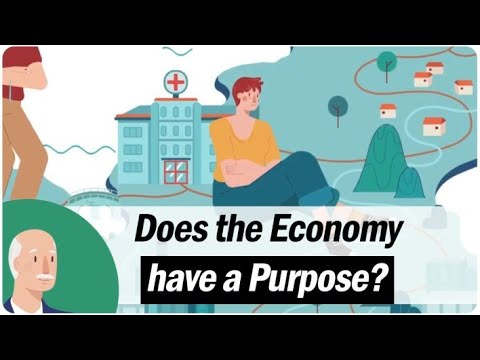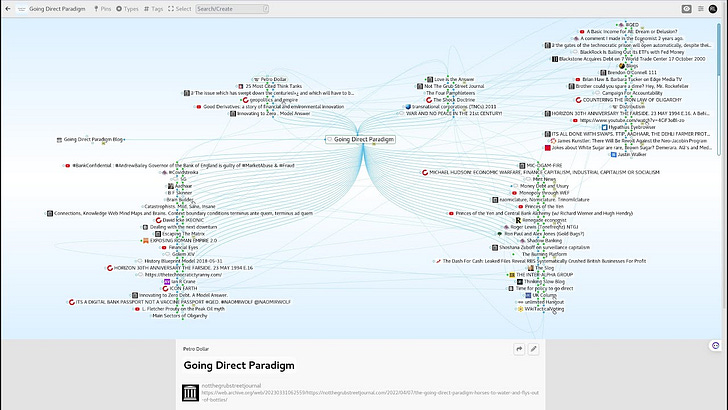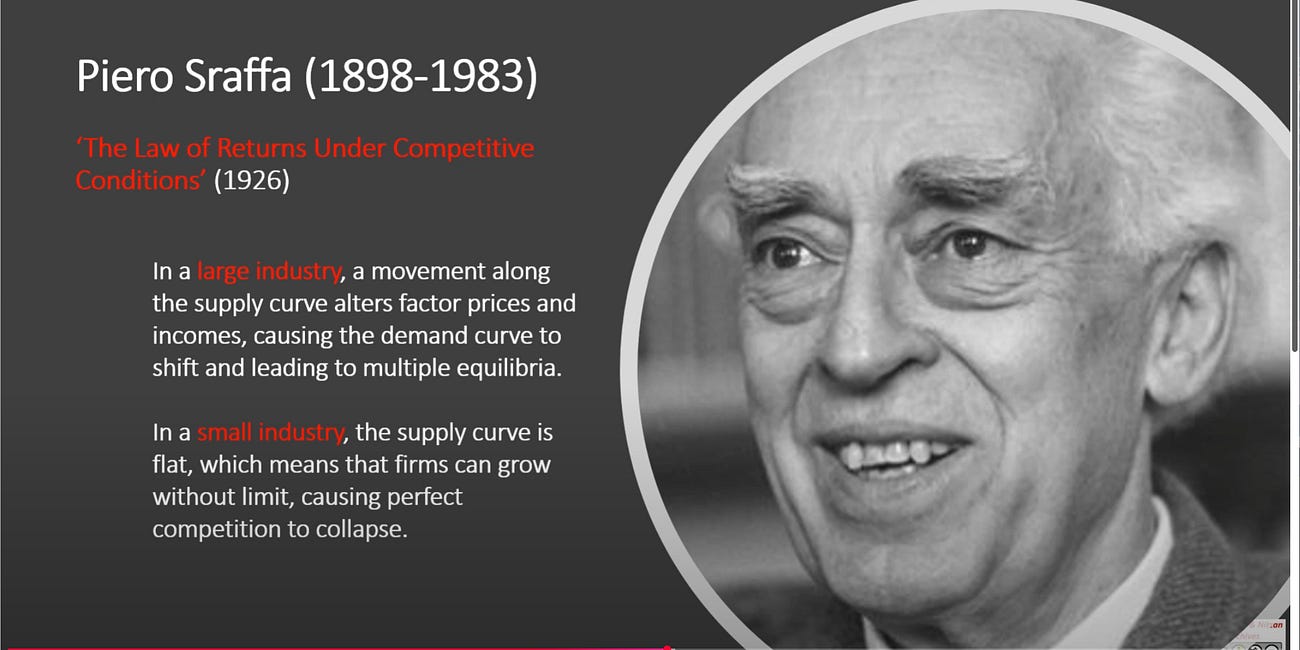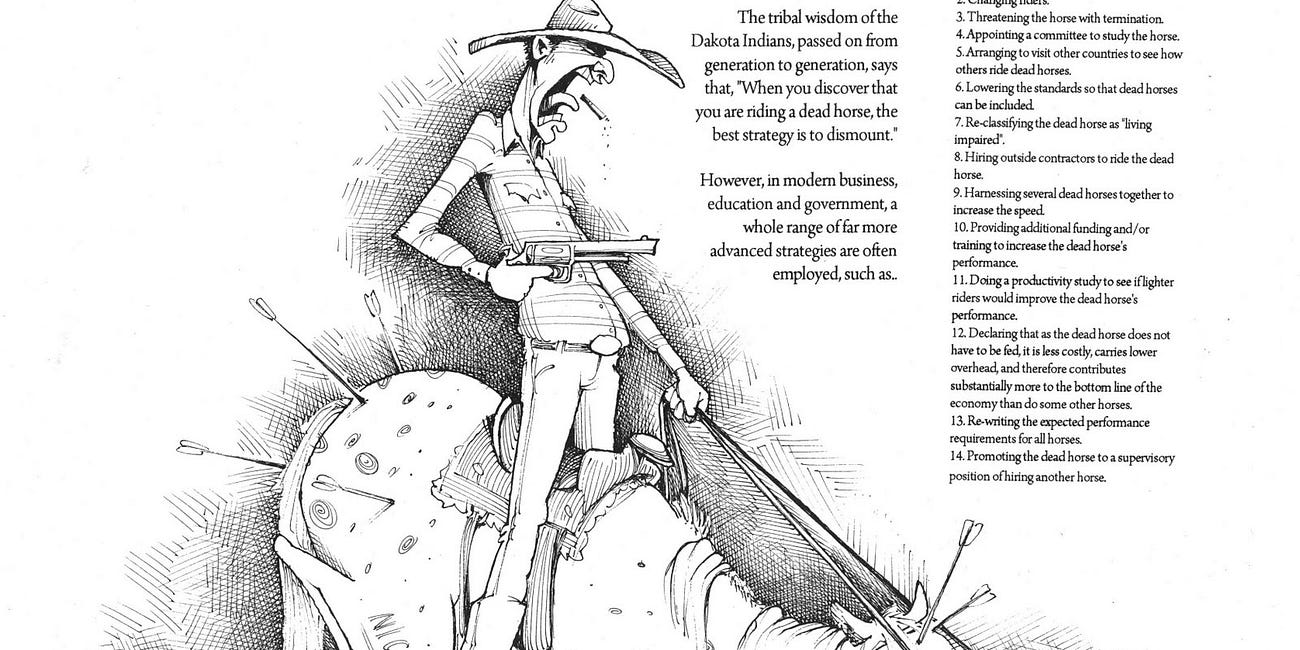The video discusses the implications of peak oil, energy transitions, and central planning on global economies, highlighting historical contexts, oligarchic control, and the role of technology in societal shifts.
Detailed Summary for [Piigs Ignorance, Peak Oil and The Road Out of Serfdom](
[00:00](
The discussion focuses on the speaker's background in energy, particularly oil and gas, and connects historical events to current issues in the context of disaster capitalism.
- The speaker expresses a personal interest in energy, despite not being an expert in the field.}
- There is an acknowledgment of the need to discuss blog content quickly to allow for further work.}
- The speaker emphasizes the importance of contextualizing news cycles to understand their significance and connections.}
- A comparison is made between past vaccine initiatives and current events, highlighting recurring themes in public health responses.}
- The conversation touches on the economic liberalization following the Soviet Union's collapse, linking it to the concept of disaster capitalism.}
[05:55](
This segment discusses the implications of a carbon-based currency standard, central planning by banks, and the historical context of peak oil theories, connecting these ideas to broader economic trends and crises.
- Exploration of the relationship between currency circulation in the real economy and the emerging carbon-based currency standard.}
- Discussion on central planning by banks and how it influences the value of money, particularly in relation to deflationary practices.}
- Introduction to the peak oil theory, its origins, and its adoption in the mid-2000s, linking it to economic philosophies like anarcho-primitivism.}
- Connection between the peak oil discourse and significant global events, such as the financial crisis and environmental movements like Live Earth.}
[11:34](
The discussion focuses on the transition from hydrocarbon dependency to renewable energy sources, emphasizing the inadequacy of renewables to replace fossil fuels in the near future. It further explores the economic implications of energy supply control and its historical context in Greece.
- The World Economic Forum's terminology shift from 'fossil fuels' to 'hydrocarbons' highlights a different perspective on energy sources.}
- The limitations of renewable energy sources like wind and solar are pointed out, noting they cannot currently compensate for the energy shortfall from oil, gas, and coal.}
- Investment challenges in hydrocarbon production, particularly in Africa, are discussed, indicating a strategic reduction in energy supply that could lead to economic deflation.}
- Historical references to Greece illustrate the consequences of energy supply control, linking it to economic hardship and societal collapse.}
- The conversation touches on the potential future of carbon credit rationing, suggesting a dire scenario akin to a 'slavery regime' due to energy constraints.}
[23:08](
The video references an insightful essay by Paul Foote that discusses the works of the poet Shelley, indicating a connection between literature and broader themes of societal issues.
[23:13](
The discussion focuses on historical and literary references that highlight the struggle for liberty and the current socio-economic challenges, emphasizing the importance of understanding past events to navigate present crises.
- Introduction to Queen Mab and its relevance as a modern literary piece.}
- Discussion on foundational stories of universal liberty and the fight for rights.}
- Historical reference to Thomas Hardy and the political climate of the 1790s.}
- Analysis of the current economic situation, indicating it may be worse than the 2008 crash.}
- Commentary on global oligarchy and the implications of geopolitical conflicts on civilians.}
[28:55](
The discussion focuses on the influence of centralized power structures and the oligarchy's role in controlling resources, shaping political narratives, and the implications of technocratic governance.
- The importance of community and place is undermined by a centralized state.}
- The term 'disloyal' refers to the oligarchy and global citizens who seek centralized control.}
- Critique of the mechanistic worldview of political elites and their misguided authority.}
- Central to the control of society is the management of resources, including minerals, land, and energy.}
- Money serves as an intermediary in the complex algorithm of wealth creation, influenced by resource management.}
[34:38](
The discussion focuses on the impact of globalism on local economies, particularly in relation to tariffs and monopolies, using historical examples like the Saudi oil franchise to illustrate the negative effects on independent producers.
- The speaker reflects on past research regarding the Hanseatic League and distinguishes between free markets and free trade.}
- The American system is characterized by tariffs and regulations that protect local merchants and manufacturers.}
- Globalism is criticized for creating monopolies that stifle competition and harm domestic producers.}
- An example is provided about the Saudi oil franchise and its agreement to eliminate competition from independent Texas producers.}
- The speaker discusses the complexities within the oligarchy, referencing Mark Carney's actions and the mixed reactions from environmentalists.}
[40:23](
The discussion centers around the impact of the Internet on society, particularly how it has unexpectedly empowered the public against attempts at surveillance and control by the elite.
- The speaker emphasizes the realization that current narratives are flawed and that there is a need to challenge misinformation.}
- The importance of mobile phones and Internet connections is highlighted, suggesting that access to technology enables individuals to bypass restrictions.}
- The Internet is described as a double-edged sword that has backfired on those in power, as it has allowed the public to gain knowledge and resist control.}
- A cautionary note is made about the intelligence of the general public, stressing that underestimating their capacity for critical thought is a significant error.}
- The speaker reflects on sharing valuable content, indicating a community effort to disseminate important information amidst the noise.}
Artificial Scarcity
This post is again a place-holder whilst I reflect on the current push towards a Quasi Gold standard around the carbon currency end game and the going direct paradigm. Artifical Scarcity of the monetary unit is substituted by a mythology of artificial scarcity of Energy and Resources. The Monetary unit is arbitrary in the Fiat Money system even one predicated on Gold or indeed carbon , unless that is that a fixed measure of the unit of account is established to measure a real energy value rather than an arbitrary manipulated “Market Price” Thats what this post is for when I read the paper making up the main part of this post in 2017 it offered a window on the real wealth transfers taking place with a Lens of Energy value proxys for international trade.
When the Crisis hit the Fan,or Now that the Guano is hitting the ventaxia Again.
Mark Blyth: The Euro – an assessment in the midst of a European war | Q&A with Yanis Varoufakis This discussion is so far off-beam as to be embarrassing. Less of a curate’s egg than a rotten egg. Why? WHEN THE CRISIS HIT THE FAN,OR NOW THAT THE GUANO IS HITTING THE VENTAXIA AGAIN. Yannis’s […]
Did you hear the one about the Blind Straw-man leading the Blind Straw-men. A Utopia of Usurers . the plutocratic appeal to science, or, rather, to the pseudo-science that they call
Did you hear the one about the Blind Straw-man leading the Blind Straw-men. A Utopia of Usurers . the plutocratic appeal to science, or, rather, to the pseudo-science that they call Seeds.
Money does not initiate Economic activity, in all cases, it is an intermediary token or rain check
“Money does not initiate Economic activity, in all cases, it is an intermediary token or rain check which has profound effects on social relations and commerce between individuals and nations, but money is a mere Idea and can be anything we imagine it to be”.















